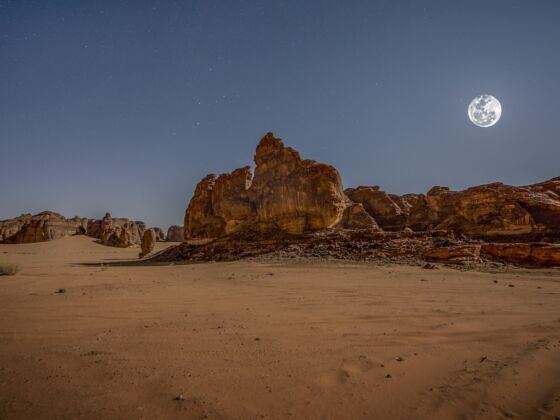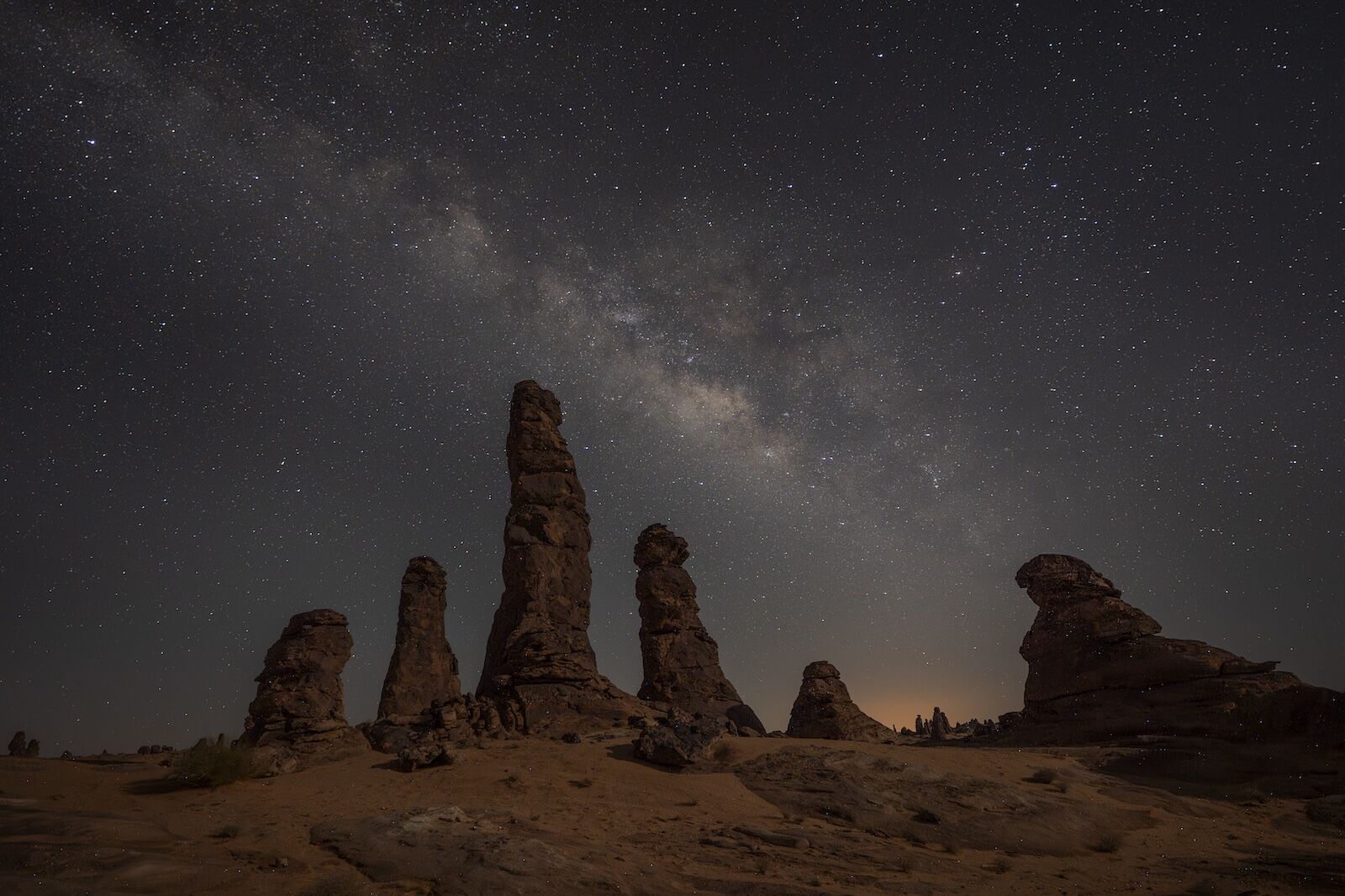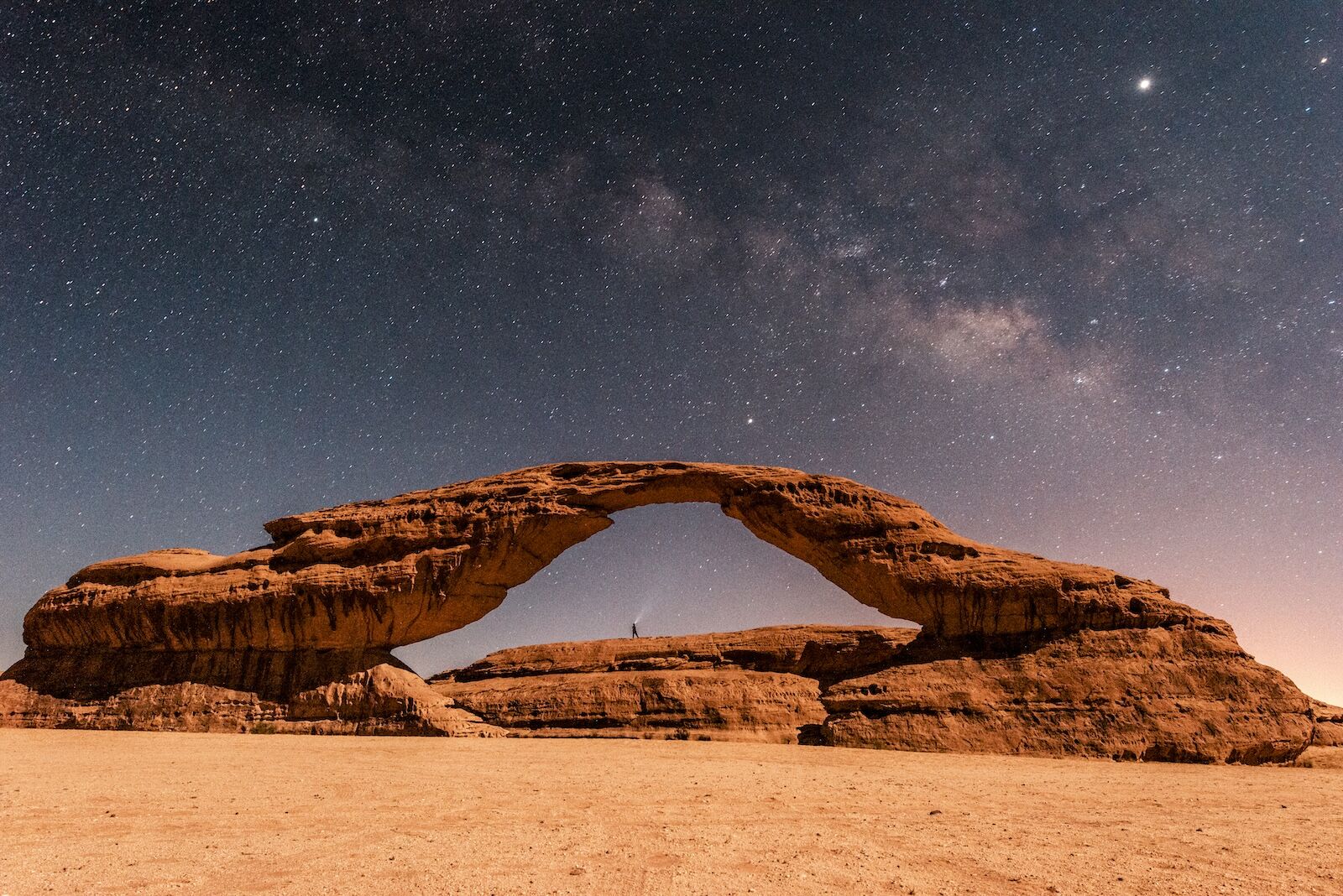There are more than 200 “Dark Sky” places in the world certified by Dark Sky International, from Dark Sky Parks to Dark Sky Reserves and Dark Sky Communities. That’s why it’s suprising that one region of the world quickly becoming a hot global tourism destination didn’t have any Dark Sky Places at all — until now.
On October 3, 2024, the area around the ancient city of AlUla, Saudi Arabia, became the first certified Dark Sky Place on the Arabian Gulf. “With a plethora of sprawling open-air locations and favorable weather conditions after nightfall, AlUla’s visitors can escape into the cosmos, marvel at the celestial wonders, and connect with the ancient heritage of celestial navigation that once guided travelers,” writes the release.


